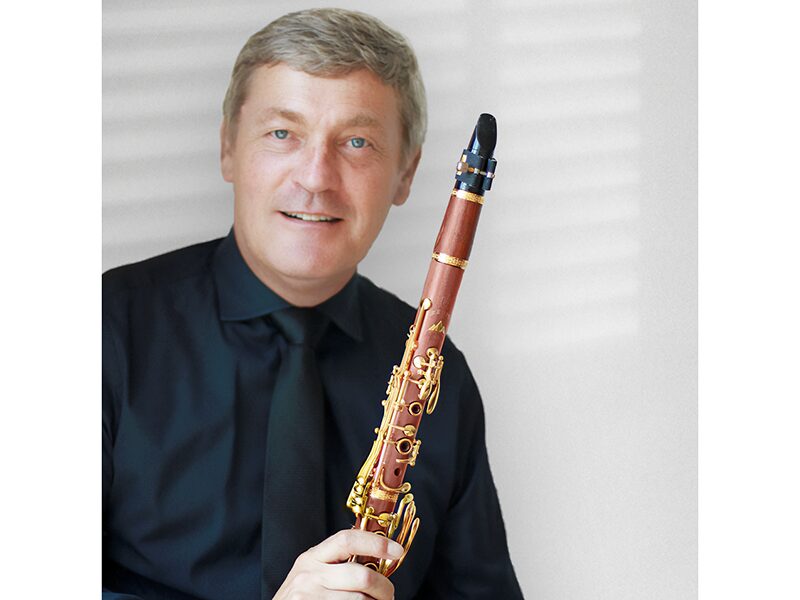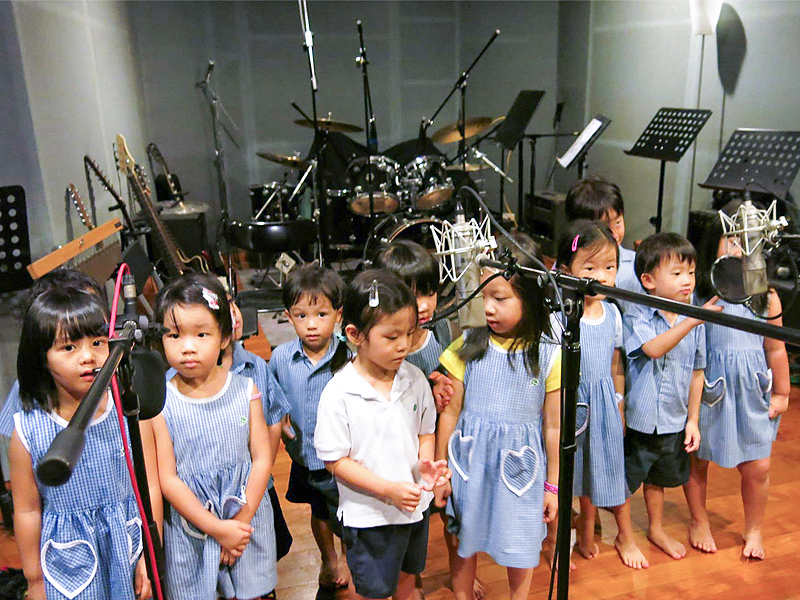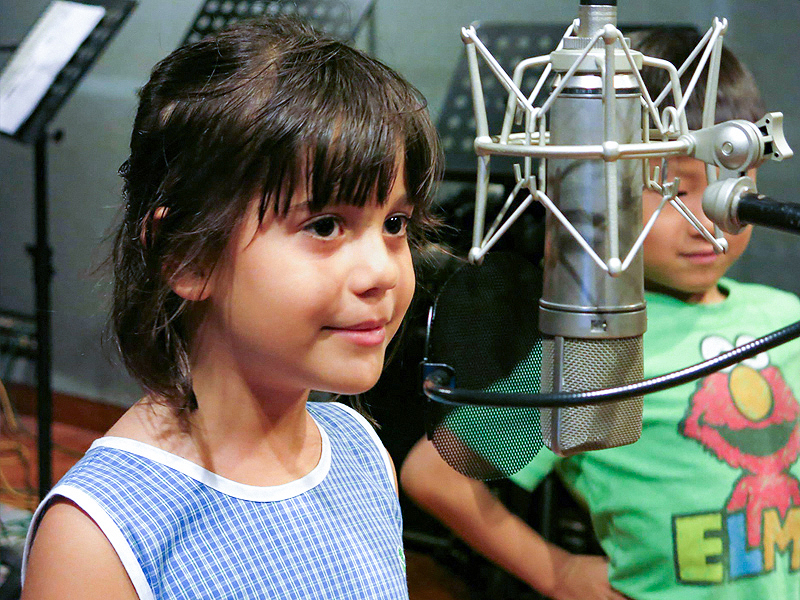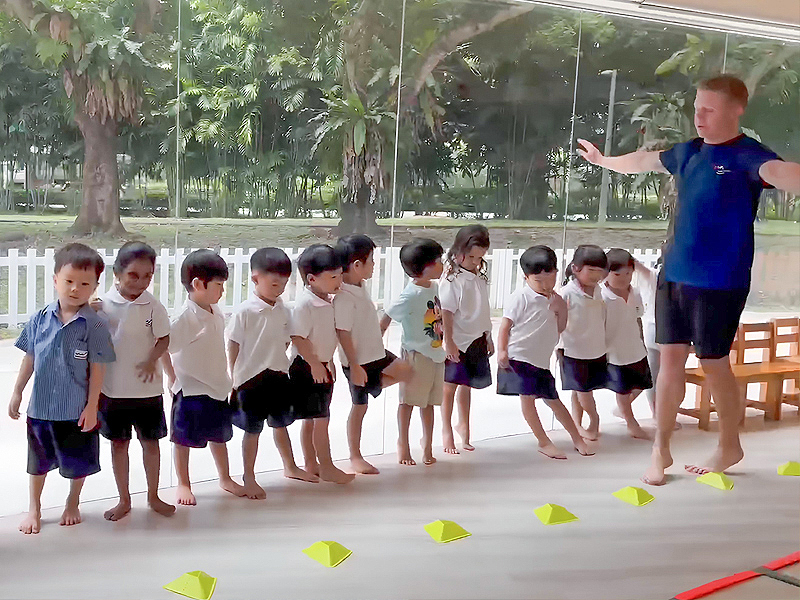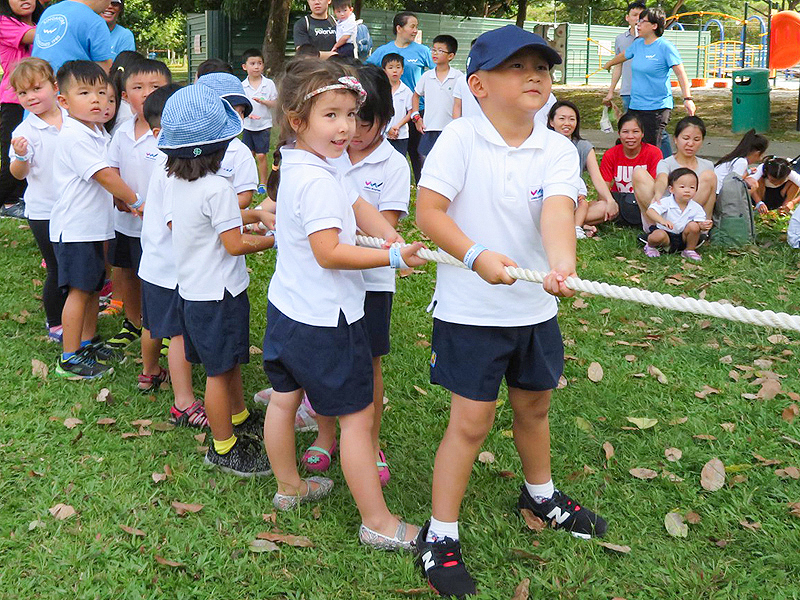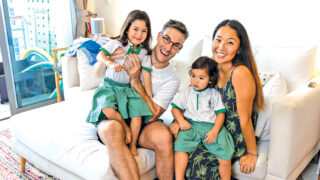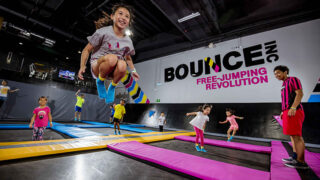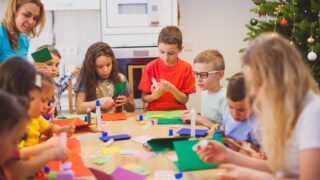Music, Art, Sports, Chinese Cultural Studies, Taekwondo – students at Lorna Whiston Preschool enjoy all of these as part of the curriculum. More than just preschool activities, however, these are taught as Masterclasses, led by specialist teachers. We hear from MICHAEL KIRBY who leads the Music Masterclass programme at the preschool.
Describe your role with the Music Masterclass programme at Lorna Whiston Preschool.
My role as a music instructor is to prepare young people for the future. I’m also going to be the voice training and singing coach for the upcoming Lorna Whiston Preschool choir.
It’s not just about receiving music lessons to sing or play the piano and have a bit of fun. We need to understand that music helps children tremendously in developing their personality and character, which will determine how they will be later in life. I’m talking about responsibility, personal discipline, teamwork in any situation, personal standards, public speaking, performing and so on.
My wish as a music instructor is to help these young people open their minds, and to make them more positive and courageous and allow them to lose the feeling of being shy and timid.
What do students learn in the Music Masterclasses?
The Music Masterclass provides many opportunities for young children to discover their potential in music. The object is to search and discover the future talents of Singapore through our preschool activities and masterclasses.
It’s also to take it out of the idea that music is an elite thing that’s not for everyone. This is not true – music came from nature and has developed over the centuries to a more sophisticated art form. The roots are still the same, and they support every type of music that we hear. Pop, Rock, K-Pop, Jazz and Classical, to name a few, are all from the same source. They became what they are today through human intervention using experimentation, innovation creativity and imagination.
Lorna Whiston Preschool activities help guide children to become more independent, creative and imaginative, and to feel how music can move a person emotionally. They provide young children with the possibility of being more focused and more dedicated to the task at hand. A good musical education, beyond music theory books and other such educational guides, makes children realise that responsibility, collaboration and solidarity within the classroom works very well and creates a positive and very productive atmosphere.
Once they learn this, they can take it as being the normal way to operate, whether professionally or at home. It’s a chance to learn how to develop social skills and find out who are future leaders, future inventors or composers.
Also, music is present in all other academic subjects and has a great influence over them. Reading with a rhythm helps to achieve more efficient reading. Maths with its calculations and fractions is very close to music, as is art, with its colours and moods. And teamwork, whether in an office, on a playing field or sitting in a band, is fundamental for achieving any goals in life and in any aspect or walk of life.
Can students choose their preferred musical instrument to learn?
From an early age, students should be able to choose an instrument to play with the only restriction being the size of the instrument, and the size of the child and their hands. For those who aren’t yet ready to tackle larger instruments, there’s the piano, guitar, ukulele, violin (which comes in different sizes) and percussion.
For me, the most important instrument that young people should learn to use correctly is the voice. There is no better way to feel music and produce music than through one’s natural voice.
The interpretation of music is based on how the human voice would perform it – that gives us the feeling of how the music should sound, how it should affect the musician and listener emotionally, and the phrasing and meaning of the music. All instruments must be played based on the art of how to sing.
I believe that all parents should allow their children to have the opportunity to discover and experiment with music. I would say 90% of children will love it and, as a result, benefit greatly from it in so many ways.
Have the students done any performances?
The Mid-Autumn Festival was a short choral performance, which was pretty good considering we only had a short amount of time to prepare. My hope and dream is to get our children performing as much as possible and be seen enjoying making music as much as I do.
We have many talented children amongst us and it’s a waste if they don’t get to hone their musical abilities more in Music Masterclasses. That’s why we’re starting a combined school choir soon. Choir practice will be a combined school session every weekend, which allows the children to practice together.
Any surprises or challenges you’ve found living and working in Singapore?
I have joined a team of professionals who are dedicated to their work and vision of the future for the young generation. I feel quite at home here, even though it’s only been three months. The people here are very friendly.
I have nothing but praise for the system, which was quick and efficient when I was obtaining a work permit.
What do you do when you’re not at school?
I return to my apartment and call my daughter who is living in Europe. We talk every day and that moment every day is very special to me.
As a performing musician, I study my clarinet daily to maintain my performance standard. I’m hoping to start performing soon in Singapore as that’s my true vocation in life and hopefully be an example to follow.
About Lorna Whiston Preschool and its Masterclasses
The team at Lorna Whiston Preschool says that at preschool age, the more children are exposed to things, the higher the chance they have of discovering their passion in a certain field. And, although talent may not be the easiest thing to spot, there’s no one better to spot it than teachers.
The school was founded in 1980 on the belief that teachers are the most important part of a good school. More than 40 years on, it holds true to the same belief, continuing to recruit experienced professionals internationally. These include globally acclaimed subject experts who conduct Masterclasses in art, music, sports and taekwondo as part of the curriculum.
The Masterclasses are integrated into the school’s curriculum for all students to enjoy. This is part of the school’s aim to offer the most all-rounded curriculum without extra charges. The international teachers encourage student participation in preschool activities and learning; this helps develop a lifelong love for learning in the children, along with the confidence for them to become whatever they choose to be.
The preschool welcomes students from 18 months to six years. Their K2 graduates are prepared for up to Primary 2 in local MOE schools.
About Michael
Originally from the UK, Michael is new to Singapore and the Lorna Whiston family. Before Singapore, he spent time in Macau, Spain and the UK.
Michael graduated from the Guildhall School of Music & Drama in London at the age of 21. He started performing under the tutelage of the late Jack Brymer OBE. He has travelled widely, performing spending 37 years as a principal clarinet playing with several orchestras from around the world.
After 40 years of performing, Michael switched to education, with music being his teaching specialty. He has taught group classes to individual clarinet classes, Chamber music classes and orchestral repertoire.
- Canberra: 6 Yishun Industrial Street 1, #01-07/08 | 9823 0925
- East Coast: 89 Marine Parade Central | 6247 7333
- Greenwich: 331 Yio Chu Kang Road, #01-00 | 8799 5567
- Hort Park: 100G Pasir Panjang Road, #01-07/08/19/20 | 9833 2797
- Kallang Wave: #01-24 Kallang Wave Mall, 1 Stadium Place | 8821 5675
Like this article on preschool activities classes? Check out our Kids’ section for more things to do in Singapore with the whole family, including holiday camps for kids. To make the most of living in Singapore, read our latest City Guide here for free!
Don't miss out on the latest events, news and
competitions by signing up to our newsletter!
By signing up, you'll receive our weekly newsletter and offers which you can update or unsubscribe to anytime.

